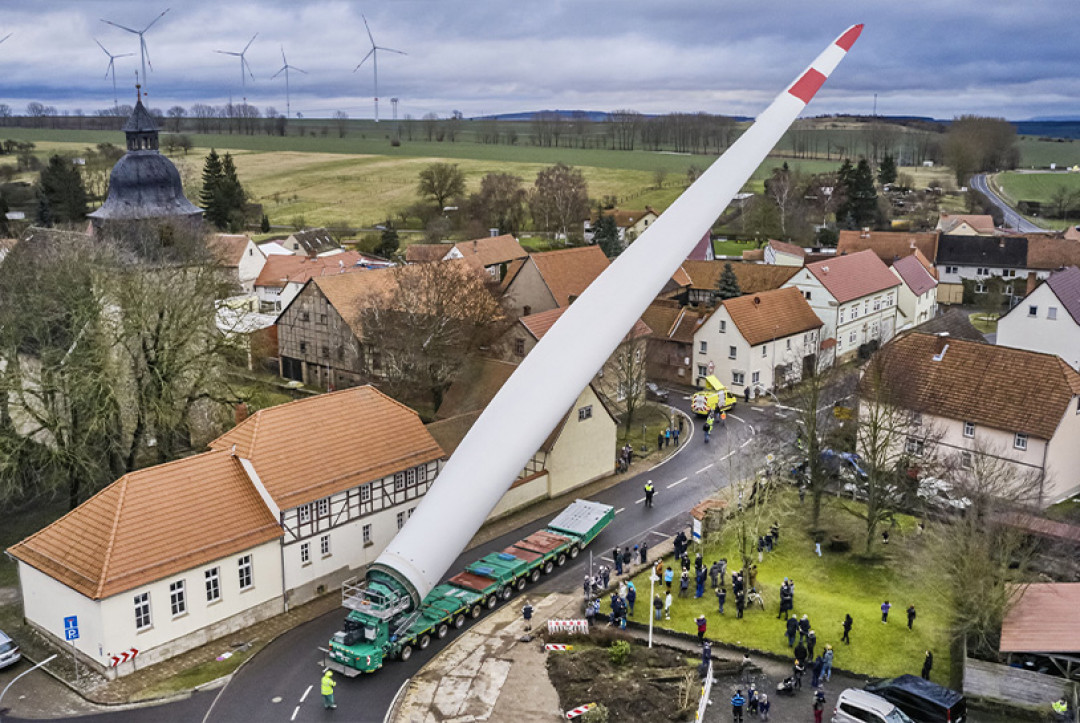
Last year, more new onshore wind turbines were approved in Germany than ever before. This is a positive sign for manufacturers and suppliers, who can expect demand to grow.
2024 was a record year for onshore wind energy: a total of 2,405 new onshore wind turbines with a capacity of 14,056 MW were newly permitted in Germany. In the tenders organised by the Federal Network Agency, bids for 1,890 wind turbines with 10,996 MW were awarded. Both figures represent unprecedented values and will lead to a noticeable increase in new installations in the coming years.
At 635 wind turbines and 3,251 MW of capacity, gross additions in 2024 remain slightly below the previous year's level and are therefore slightly below the forecast of the two associations, which had estimated up to 4,000 MW. The total installed capacity increased to around 63,460 MW. This is the result of the analysis commissioned by the German Wind Energy Association e.V. (BWE) and VDMA Power Systems, which was carried out by the German Wind and Solar Agency for the first time this year.
Dr. Dennis Rendschmidt, Managing Director of VDMA Power Systems: "The significant increase in the number of approvals and permits illustrates the recovery of the German market and signals a new dynamic for the industry. This is a significant step in the right direction. The new federal government must manage to maintain this momentum. The expansion of wind energy must continue unabated, as it secures our energy supply, reduces the cost of electricity and creates jobs!" According to Rendschmidt, requirements for large-capacity and heavy-duty transport must be standardised, the transport infrastructure modernised and grid connections accelerated.
Attrative sales market also for the foundry industry
Onshore wind energy is not only the most important contributor to German energy generation, but also a decisive location and economic factor. It ensures climate-neutral and cost-efficient electricity generation in Germany. The industry is deeply rooted in mechanical engineering and offers an attractive sales market, particularly for suppliers and for the maintenance and operation sectors. "Manufacturers and suppliers in the European mechanical engineering sector can and will continue to deliver. They can also adapt their capacities to growing demand. This requires a predictable market that ramps up as evenly as possible with reliable framework conditions and a competitive level playing field," says Rendschmidt.
Casting components play a crucial role in the construction and operation of wind turbines. They are mainly used for critical parts that have to fulfil high mechanical requirements - including casing, foundations, rotors and flanges.
Featured photo: Jan Oelker/Boreas

